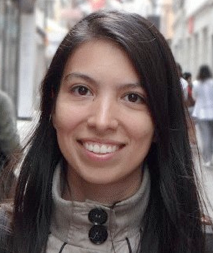CSE Seminar
Fairness and Diversity in Online Social Systems
Add to Google Calendar

Social systems are now fueled by algorithms that facilitate and control connections and information. Simultaneously, computational systems are now fueled by people — their interactions, data, and behavior. Consequently, there is a pressing need to design new algorithms that are socially responsible in how they learn, and socially optimal in the manner in which they use information. In this talk, I will share some of my research efforts to address such problems at this interface of social and computational systems. I will first explain the emergence of bias in algorithmic decision making and present first steps towards developing a systematic framework to control biases in classical problems such as data summarization and personalization. I will then consider how crowdsourced information is used, and new mechanisms that can increase diversity in a way that improves user experiences. Together, this work leads to new algorithms that have the ability to alleviate bias and increase diversity while often simultaneously maintaining their theoretical or empirical performance with respect to the original metrics.
Elisa Celis is a Senior Research Scientist at the School of Computer and Communication Sciences at EPFL. Prior to joining EPFL, she worked as a Research Scientist at Xerox Research where she was the worldwide head of the Crowdsourcing and Human Computation thrust. She received a B.Sci. degree in Computer Science and Mathematics from Harvey Mudd College and a Ph.D. in Computer Science from the University of Washington. Her research focuses on studying social and economic questions that arise in the context of the Internet and her work spans multiple areas including fairness in AI/ML, social computing, online learning, network science, and mechanism design. She is the recipient of the Yahoo! Key Challenges Award and the China Theory Week Prize.
 MENU
MENU 
